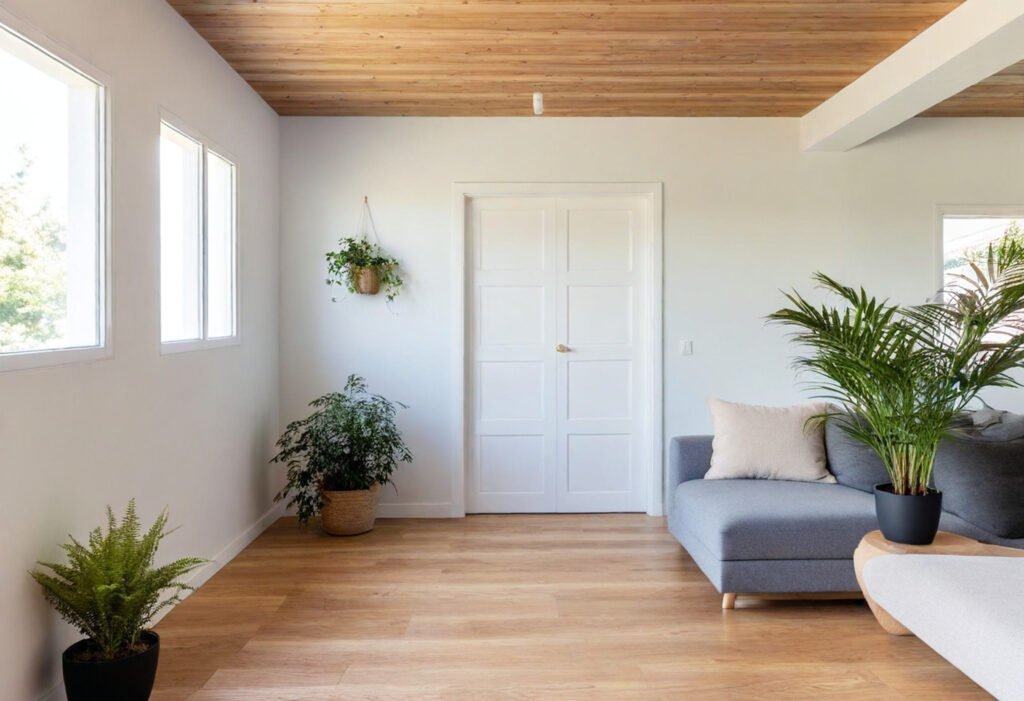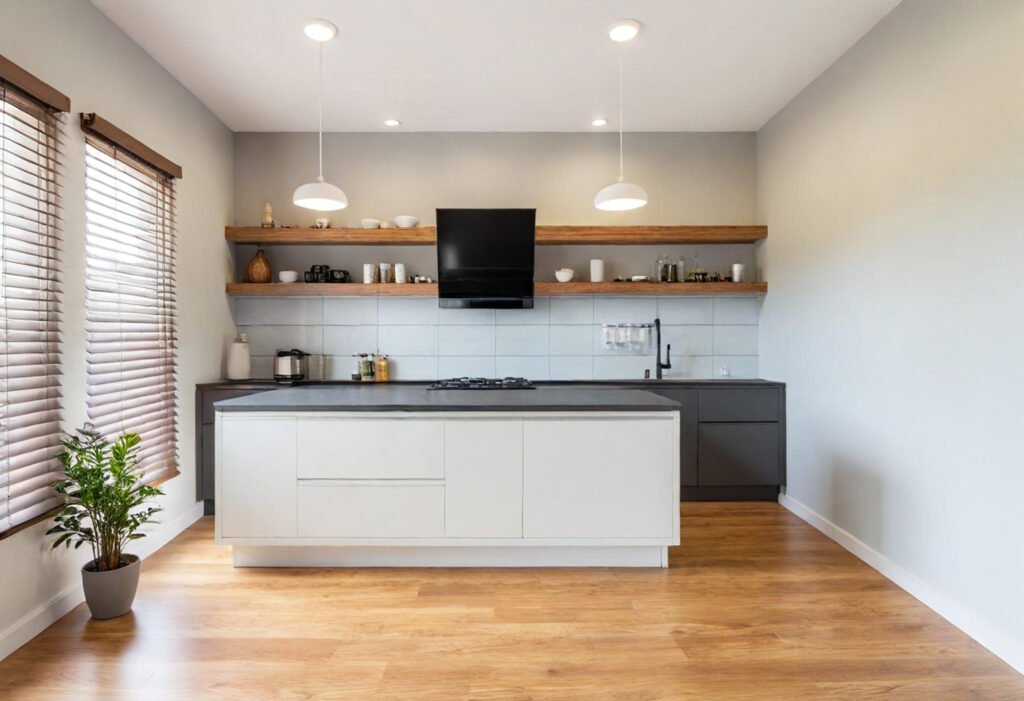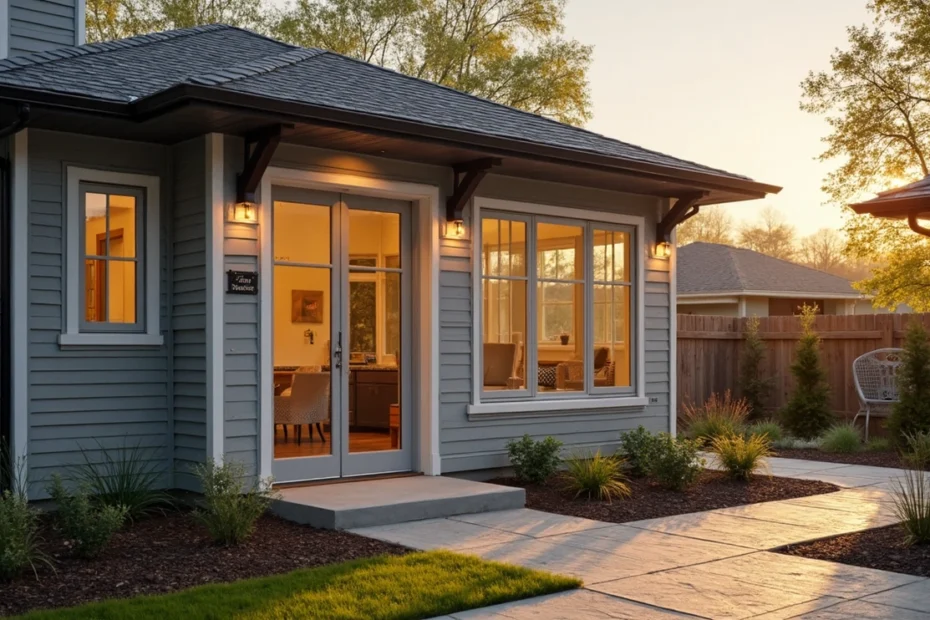A garage to guest house conversion could become one of your smartest property investments. The largest longitudinal study shows that rented conversions can deliver an impressive 10x return on investment over 30 years. This type of renovation substantially improves your property’s market appeal without the full expense of a traditional home addition.
Your detached garage conversion project might seem overwhelming at first glance. The process costs less than building from scratch, whether you want to create a space for visiting family, generate rental income, or add a versatile living space. The costs range between $140,000-220,000 in major metropolitan areas. We suggest setting aside 10-15% of your budget because unexpected expenses will arise during these projects. This piece offers expert tips that will help you revolutionize that underused garage into a functional, comfortable guest room and add both value and versatility to your property.
Planning Your Garage Guest House Conversion

A successful garage to guest house conversion needs proper planning. Your early decisions will shape the project’s quality and help you find affordable solutions.
Check the structure and foundation
Your garage’s foundation is where everything starts. Take a good look at your garage’s structural integrity and check the foundation for cracks, moisture problems, or uneven surfaces. These foundation issues can make your garage sink or settle, which damages the whole project.
You’ll need to assess the walls, roof, and overall condition to meet building codes. Getting a structural engineer to look at your garage might be needed to verify everything’s solid. Major problems might mean you’ll need stronger foundation work or, in worst cases, start from scratch—this is a big deal as it means that your budget will take a hit.
Set a realistic budget
A detailed money plan is vital for your conversion project. Garage conversion costs usually run between $50,000 and $150,000, based on several factors. Simple projects like home offices or playrooms might cost $5,000 to $10,000, while bedrooms or family rooms cost $6,500 to $15,000.
Set aside 10-20% of your total budget for surprise expenses. Start with the must-have features and get quotes from multiple contractors to find the best prices.
Decide on the purpose: guest room, rental, or family use
Your garage guest house’s purpose will shape all design choices. Here are your options:
- Guest accommodation: A private, cozy space for visitors with a small bathroom and maybe a kitchenette
- Rental income: An apartment-style space could bring in $1,000-$2,000+ monthly in Portland-like areas
- Family use: Extra living space that works great for aging parents or other family members
Your choice affects layout needs, amenities, and budget. Look up local zoning laws since requirements vary between rental properties and family spaces.
Understanding Permits and Legal Requirements
Legal compliance is a vital part of turning your garage into a guest house. The regulations may look overwhelming at first. Getting familiar with these requirements early will save you time, money, and headaches down the road.
Know your zoning laws
Zoning regulations control what you can build and how you use structures on your property. These laws differ a lot between locations. They control things like setbacks from property lines, height limits, and allowed uses. Your city’s website under the planning or community development sections will help you identify your property’s zone. Some areas don’t allow accessory dwelling units (ADUs) at all, while others have made their rules more relaxed to create more housing options.
What permits you will need
Your garage conversion will need several permits based on what you plan to do:
- Building permits – For structural changes and overall conversion
- Electrical permits – For wiring and electrical systems
- Plumbing permits – For water and sewer connections
You’ll need to submit detailed plans or blueprints that show the layout, electrical systems, plumbing, and structural changes. Permit fees range between $300 and $1,000, though prices change based on where you live. Local building departments will review your applications to make sure they meet safety standards.
How to avoid legal issues
Not following regulations can lead to serious problems like big fines, stop-work orders, or even having to tear down your work. You should get a full picture of local ADU rules before starting any work. It helps to ask professionals who know local requirements. Getting proper permits isn’t just about following laws—it protects your safety and investment.
Note that inspectors will check your work at different construction stages. They make sure everything meets safety and building code requirements. Stick to your approved plans because changes without approval could cause problems.
Designing a Comfortable and Functional Space

Your garage-to-guest house conversion can become a welcoming space with the right focus on comfort and functionality. Several key elements work together to create a cozy living environment.
Insulation and climate control options
Good insulation creates the foundation of a comfortable garage guest room. You just need insulation with an R-value between R-13 and R-21 for walls, while ceilings should have higher R-30 or R-40 ratings to optimize energy use. You can pick from fiberglass batts, rock wool (great for moisture resistance), spray foam (creates an air seal), foam board, and eco-friendly cellulose insulation. Good ventilation plays a crucial role, too, especially when you have heating appliances.
Ductless mini-split systems work best for garage conversions. These units provide heating and cooling without extensive ductwork and give precise temperature control while saving energy. A professional can mount indoor units on walls or ceilings in just one day.
Plumbing and electrical setup
Safety and code compliance make professional electrical work essential. Building regulations from 2005 state that electrical modifications need proper permits and must follow current standards. A qualified electrician will help you avoid problems and ensure everything meets regulations.
The plumbing setup should take a practical approach to water supply and drainage lines. Getting professional help will ensure proper slopes and connections, which becomes crucial for bathroom facilities or kitchenettes.
Choosing the right layout for small spaces
A detailed floor plan helps you tap into the potential of your limited square footage. Start by placing essential areas like the sleeping space, bathroom, and kitchenette. An open layout that combines kitchen, dining, and gathering spaces works well while each area serves its purpose.
Adding windows and natural light
Natural light can reshape the scene of your garage conversion completely. Picture windows bring in plenty of light, casement windows help with ventilation, and skylights add brightness without losing privacy. Well-placed windows make your space feel bigger and more welcoming. You can add frosted glass, tinted windows, or glass doors with between-the-glass shades for extra privacy.
Smart Interior Features to Include
Smart selection of interior features with multiple purposes will help you make the most of your garage guest house. Let’s look at what makes a small space truly livable.
Compact kitchenette essentials
A well-planned kitchenette lets guests be self-sufficient without taking up too much space. Your foundation should include a mini-fridge, microwave, and small sink. A hot plate or convection oven adds more cooking options. Some clever designs can fit entire kitchenettes inside large armoires, complete with sink, microwave, mini-fridge, and induction heating.
Bathroom layout and fixture tips
Every inch matters in small bathrooms. Corner sinks take up just 4 square feet while maximizing floor space. Wall-mounted toilets with hidden tanks take up less room. A compact shower stall with a partial wall gives you the perfect mix of openness and privacy.
Space-saving furniture ideas
The right furniture can change how you use small spaces. Murphy beds tuck away into walls, giving you back valuable floor space. Here are some smart options:
- Foldable tables and desks that work for both dining and work
- Wall-mounted desks that barely touch the floor
- Storage ottomans that give you a place to sit and hide things
Storage solutions for small areas
Built-in shelves make great use of vertical space without eating into living areas. The space under the stairs becomes useful storage instead of dead space. Wall-mounted systems and overhead shelves keep your stuff accessible but off the floor.
Creating a private entrance
A separate entrance gives both guests and homeowners their privacy. This small detail makes a big difference in how independent your converted space feels.
Optional laundry area setup
Stackable washer/dryer units help create a fully self-sufficient space. A utility sink adds function without needing much extra room. Good ventilation in laundry areas keeps moisture from building up.
Conclusion
Converting your garage into a guest house is a smart investment that adds value to your property and makes it more functional. This piece explores what makes these conversions work so well. Good planning is the lifeblood of any garage conversion project. You need a full picture of structural integrity and a realistic budget.
Your specific needs will shape your design choices. Whether you want to host occasional visitors, earn rental income, or create space for family members, these factors matter. Following legal requirements is vital too. The right permits help you meet safety standards and avoid getting hit with penalties.
Smart design choices lead to comfort and functionality. Quality insulation, efficient climate control systems, and proper electrical and plumbing work make a big difference. Small spaces need creative solutions. Space-saving features like multi-functional furniture, compact kitchenettes, and smart storage systems can transform the area completely.
Your garage conversion might look challenging at first, but the benefits are worth the effort. A well-done conversion adds value to your property and creates a flexible living space that costs nowhere near what new construction would. Best of all, you’ll turn an unused area into a cozy retreat that meets your needs for years. Your dream guest house is waiting just behind that garage door – all you need is careful planning and attention to detail.
